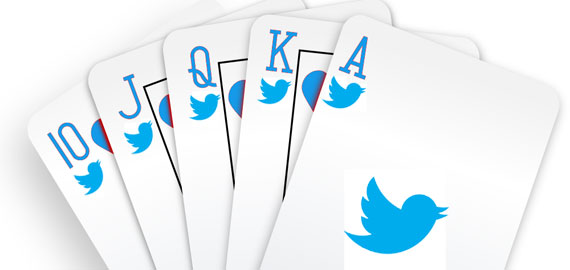Searching For Mobile Apps May Be In The Cards
Mobile Application Search in both Apple’s App Store and Google Play is frustratingly similar to general online search in the early 2000s — and the tactics used to make them visible in search resuls also closely mirror the SEO best practices from that era. Searching for and discovering the right apps is a concern for […]

Twitter Cards Image from Marketing Land
Mobile Application Search in both Apple’s App Store and Google Play is frustratingly similar to general online search in the early 2000s — and the tactics used to make them visible in search resuls also closely mirror the SEO best practices from that era.
Searching for and discovering the right apps is a concern for both developers and mobile users, which may recently have been dealt a helping hand from Twitter with its App Cards.
How Do Twitter App Cards Work?
Currently, you need special approval from Twitter for the app card program, although this should be generally available by May 2013.
Once admitted into the app card program, anyone who Tweets a link to a page or pages that you have designated will have an app card added to the Tweet, which is visible to followers when the tweet is viewed on their Android or iOS device.
You can designate a page (such as your Homepage, About, or App page) by including these Twitter META tags in the HEAD portion of the page code, similar to the Open Graph tags used predominantly for Facebook.
| Card Property | Description | Required |
|---|---|---|
| twitter:card | Must be set to a value of “app” | Yes |
| twitter:description | You can use this as a more concise description than what you may have on the app store. This field has a maximum of 200 characters. | Yes |
| twitter:app:id:iphone | String value, and should be the numeric representation of your app ID in the App Store (.i.e. “307234931”). | Yes |
| twitter:app:id:ipad | String value, should be the numeric representation of your app ID in the App Store (.i.e. “307234931”). | Yes |
| twitter:app:id:googleplay | String value, and should be the numeric representation of your app ID in the App Store (.i.e. “307234931”). | Yes |
Twitter will then link to the appropriate app store based on the device type the Tweet is viewed on. What this means is that the same Tweet will go to the Google Play location of the app for an Android user, while going to the Apple App Store location for an iOS user.
As this evolves past its trial period, it should be a great revenue generator for Twitter as it charges for impressions/clicks; but, why is this necessary with search engines and app stores presently?
How App Search Works Now
App stores, in varying degrees, leverage the following factors in displaying an app from a search query:
- Keywords in the App Title
- Keywords Assigned
- Number & Velocity of Downloads
- Number & Velocity of Uninstalls
- Number & Velocity of Inactives
- Number & Quality of Reviews with Comments
- App Publisher History
- Social Mentions
Google’s standard SERP recognizes the mobile searcher’s user agent in order to display a direct link to an app download based on the query and standard algorithm factors… that is, when the respective app store provides the proper server headers or doesn’t suffer chronic downtimes :)
How Do These Twitter Cards Help App Search?
Social mentions — combined with the assumed downloads, comments, and lack of uninstalls — will be sure to help the app’s rankings in respective app stores, all the while helping with visibility in standard search.
Now that Twitter has opened itself to be indexed by Google, as well as allowing a direct feed into Bing, these Twitter app card links can be crawled to help increase rankings in the standard SERPs, both as a linking and social mention frequency factor.
This is such a great idea for social platforms from an advertising revenue standpoint that I can envision it being quickly emulated by Facebook and Google+.
From a search marketer point of view, this is also great as it provides added META information to be optimized toward achieving added visibility to apps/products online.
Perhaps next, we can have an App Store for people.
Opinions expressed in this article are those of the guest author and not necessarily Search Engine Land. Staff authors are listed here.
Related stories